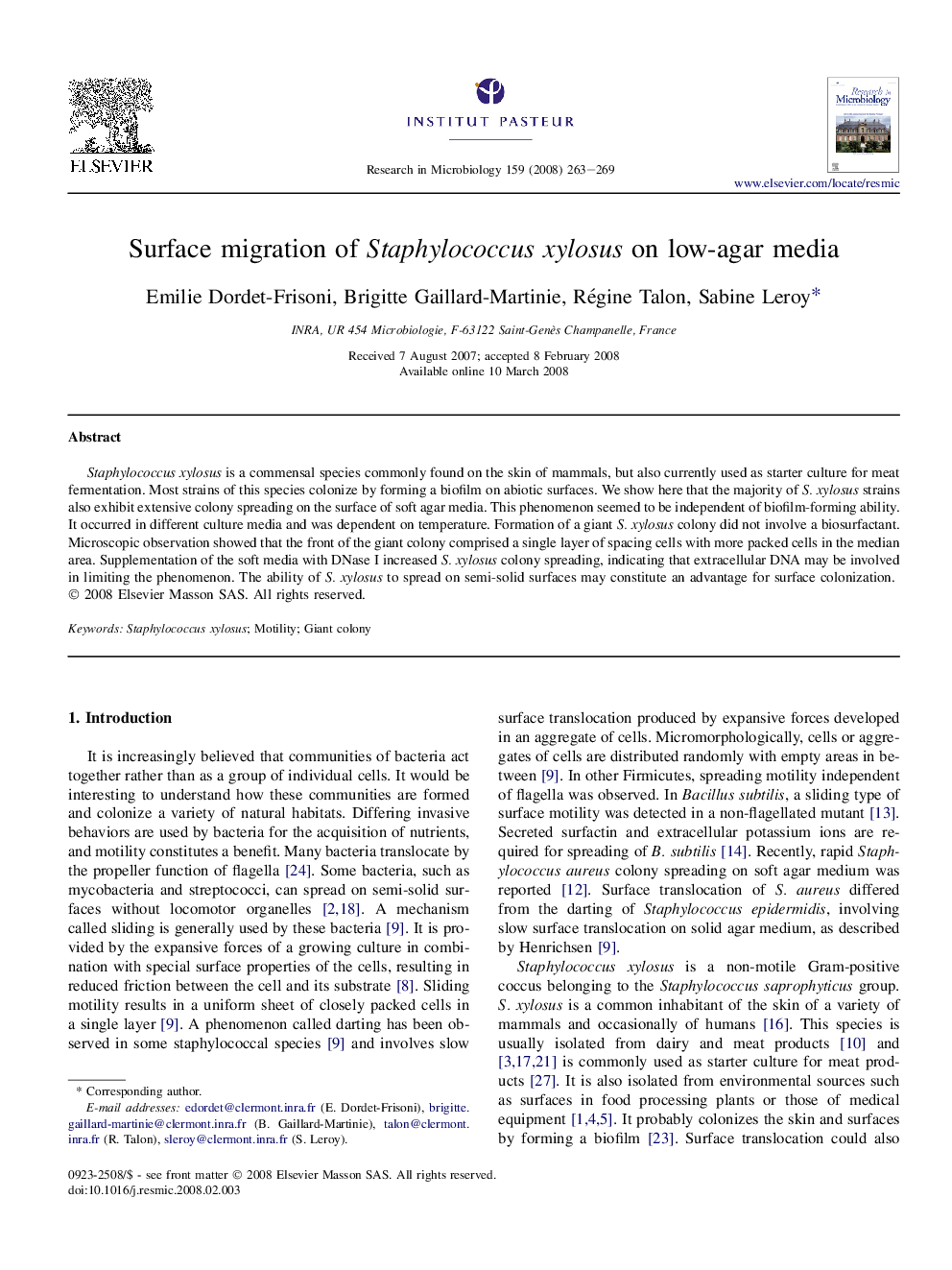| Article ID | Journal | Published Year | Pages | File Type |
|---|---|---|---|---|
| 4359540 | Research in Microbiology | 2008 | 7 Pages |
Staphylococcus xylosus is a commensal species commonly found on the skin of mammals, but also currently used as starter culture for meat fermentation. Most strains of this species colonize by forming a biofilm on abiotic surfaces. We show here that the majority of S. xylosus strains also exhibit extensive colony spreading on the surface of soft agar media. This phenomenon seemed to be independent of biofilm-forming ability. It occurred in different culture media and was dependent on temperature. Formation of a giant S. xylosus colony did not involve a biosurfactant. Microscopic observation showed that the front of the giant colony comprised a single layer of spacing cells with more packed cells in the median area. Supplementation of the soft media with DNase I increased S. xylosus colony spreading, indicating that extracellular DNA may be involved in limiting the phenomenon. The ability of S. xylosus to spread on semi-solid surfaces may constitute an advantage for surface colonization.
